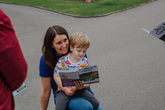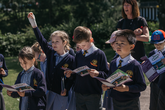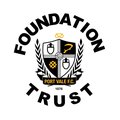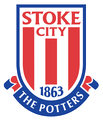Stoke-on-Trent

Our work in Stoke-on-Trent inspires the city to enjoy reading and helps parents to support their children’s literacy skills.
To get families in Stoke-on-Trent excited about reading and sharing stories, we run exciting community initiatives like Story Quest or Tales in the Park, our summer storytelling festivals.
We also work with schools to support the teaching of literacy, and partner with local businesses who support our mission to raise literacy levels in the city. Make sure you're following our Facebook page for regular updates on our work.
Stoke 100 Reads
The city of Stoke-on-Trent is turning 100 years old this year!
Together with Stoke-on-Trent Libraries, we’re on the hunt to find our city’s 100 favourite children’s books to celebrate 100 years of Stoke, as part of our mission to #GrowAGenerationOfReaders. Can you help us?
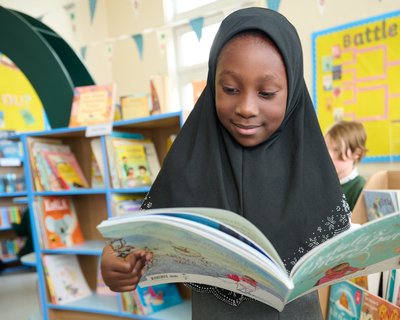
-
Fun family activities and free, useful resources aimed at Stoke families.Learn more
-
We have lots of resources, guidance and training to support Stoke-on-Trent's schools and teachers.Learn more
-
We need your help to raise literacy levels in Stoke-on-Trent.Learn more
Tales in the Park
We are returning to Stoke-on-Trent’s parks this summer with a series of free family storytelling festivals! Watch out for more details coming soon.
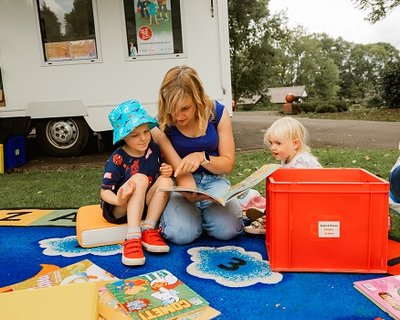
Take part in our latest Story Quest
Discover our Hanley's Hidden History Story Quest. We've made some lovely new time-traveling friends from the Saxon age, but they've lost something very special. Can you help them find it?
This story will take you on an adventure through Hanley's history, from the Saxon age to the present day, encouraging families with primary school aged children to complete various challenges and discover fun facts about the area.
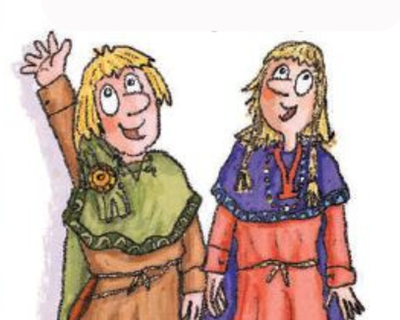
Get involved
If you would like to receive updates on our work, or make another kind of enquiry, email the Stoke Literacy Trust team: stoke@literacytrust.org.uk
